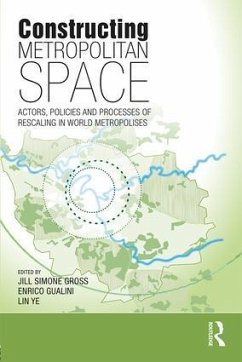
Constructing a Sense of Place
Architecture and the Zionist Discourse
Herausgeber: Yacobi, Haim
Versandkostenfrei!
Versandfertig in 1-2 Wochen
168,99 €
inkl. MwSt.

PAYBACK Punkte
84 °P sammeln!
By providing an innovative new perspective on how the Israeli state had developed, this book sheds light on how architecture shapes national identity in any post-colonial and settler state. While it is widely recognized that architects and their architecture play a key role in constructing a sense of place, the inherent nexus between an architectural ideology and the production of national space and place has so far been neglected. By focusing on the Zionist ideology, this book brings together practising architects and academics to critically examine the role of architects, architecture and sp...
By providing an innovative new perspective on how the Israeli state had developed, this book sheds light on how architecture shapes national identity in any post-colonial and settler state. While it is widely recognized that architects and their architecture play a key role in constructing a sense of place, the inherent nexus between an architectural ideology and the production of national space and place has so far been neglected. By focusing on the Zionist ideology, this book brings together practising architects and academics to critically examine the role of architects, architecture and spatial practices as mediators between national ideology and the politicization of space.














